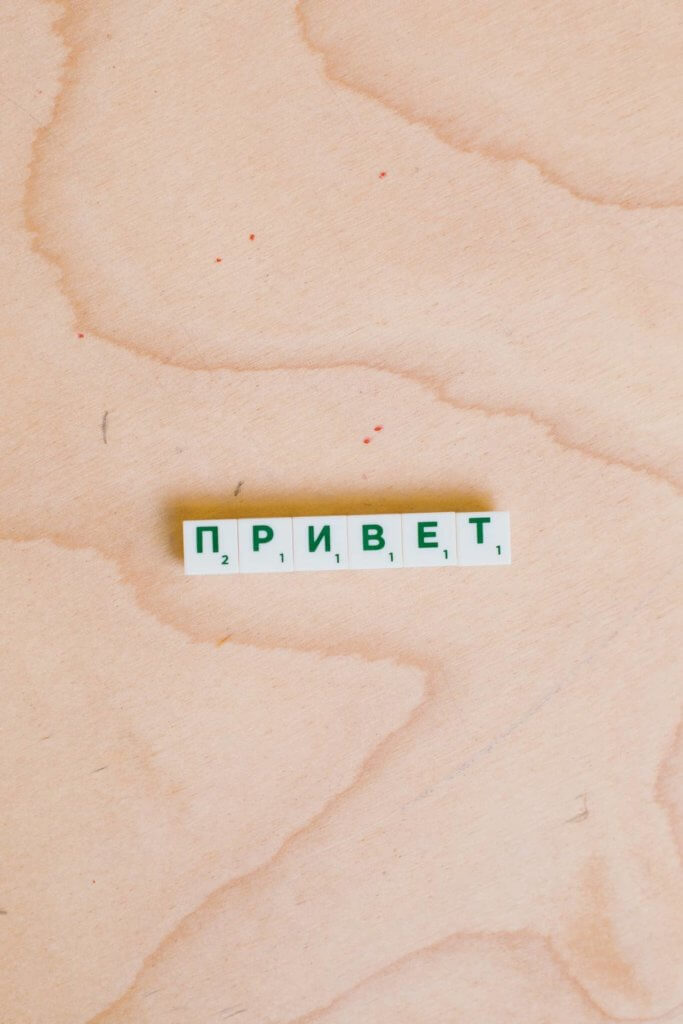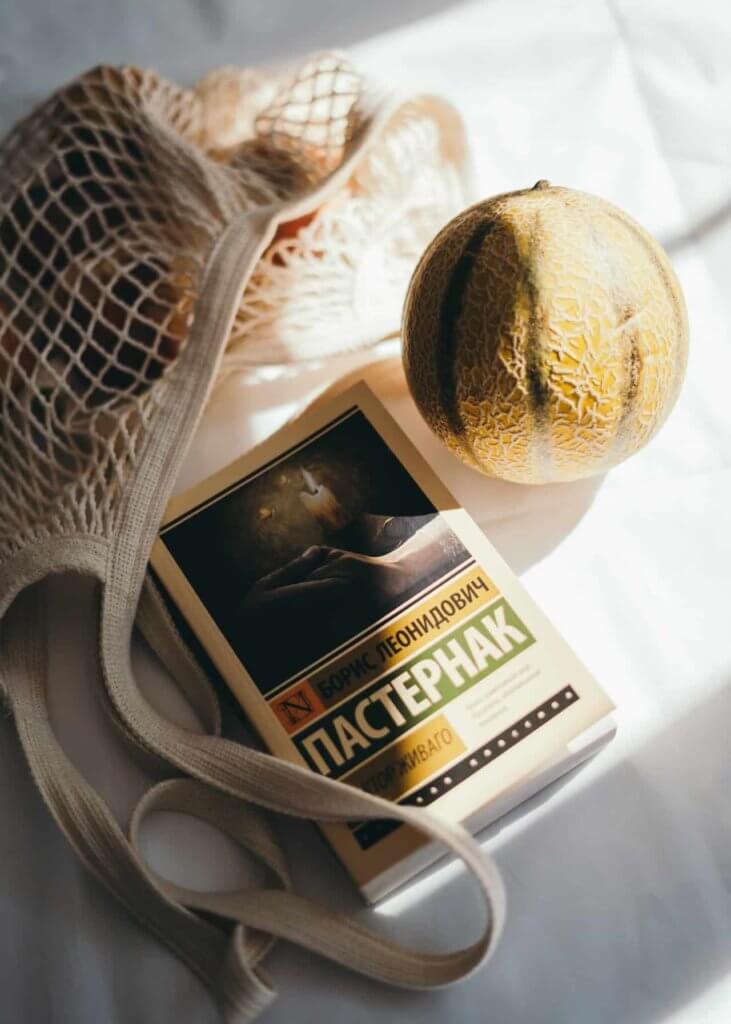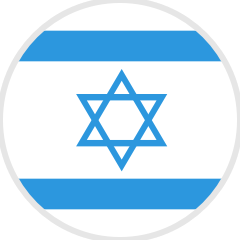How To Learn Russian With 8 Top Fluency Tips
Updated February 9, 2024
Are you looking for the best way to learn Russian? You’re in luck! This article will show you how to learn Russian quickly and effectively with 8 proven tips.
So, you want to learn Russian
And why wouldn’t you? Russian is the 7th most spoken language in the world, with 154 million native speakers worldwide. It’s also a fascinating language with an interesting alphabet and huge cultural, political, and economic relevance.
This article will show you why and how to learn Russian with simple yet effective tips. Before we begin, remember that the best way to learn Russian is to use the Fluent Forever app and sign up for our Live Coaching program.
Our 4-step science-backed methodology will take you to Russian fluency in no time! Click here to get started!
How long does it take to learn Russian?
The best way to learn Russian with 8 proven tips
The Fluent Forever method: How to learn Russian forever

That’s “Hey” in Russian
Photo by Polina Zimmerman from Pexels
Why learn Russian?
Learning any foreign language comes with a whole set of perks and benefits, and Russian is no different! Here are some reasons why you should totally pick up this language.
Culture: Russia has a rich cultural and literary heritage – Dostoevsky, Tolstoy, and Chekhov are only three of the many great Russian authors. Russia’s history is also packed with interesting figures like Peter the Great, Elizabeth Petrovna, and Vladimir Lenin.
Learning Russian will let you explore the works and lives of these famous people in their original and unconstrained language.
Business: Russia is one of the seven official languages of the UN. As such, it’s highly recommended as a foreign language for people thinking about going into international relations or politics.
Additionally, Russian will open doors for you in the Eurasian markets, plus it could help you connect with potential clients or partners in the region.
Travel: Besides Russia, Russian is the official language of Kyrgyzstan and Belarus. Large portions of people also speak it in ex-Soviet countries like Azerbaijan, Estonia, Georgia, Latvia, Lithuania, Moldova, and Tajikistan.
By learning Russian, you will be able to travel more comfortably in all of these countries. Furthermore, English is rarely spoken by locals in this region, so you can’t rely on it so much!
Is Russian hard to learn?
In short, yes, Russian is generally a difficult language to learn for native English speakers. The Foreign Service Institute (FSI), which is the agency responsible for training US diplomats, ranks Russia as a Category III Language.
Languages in this category are ““Hard languages” – Languages with significant linguistic and/or cultural differences from English.” Two main aspects that make it difficult to learn are its alphabet and grammar.
For starters, Russian’s Cyrillic alphabet is significantly different from the Latin alphabet. While some characters look and sound similar to Latin letters, most will be entirely new.
That being said, keep your chin up! Learning Russian can be easier for some people depending on several factors. For example, if you know other Slavic languages, Russian won’t be entirely foreign and will be simpler to grasp.
Previous experience with language learning will also help. If Russian is not the first new language you’re learning, you probably already have useful tools, resources, and strategies that will come in handy.
Lastly, the quality and effectiveness of the resources and methods used can make learning Russian an easier endeavor. For example, if you use an app like Fluent Forever, which relies on flashcards with images instead of direct translations, acquiring and memorizing Russian vocabulary is proven to be faster.
How long does it take to learn Russian?
According to the FSI, it takes 44 weeks or 1,100 hours of rigorous study to reach a professional working proficiency. However, factors that can speed things up, like motivation, fluency goals, resources used, degree of immersion, and knowledge of other languages, aren’t considered in this estimation.
Considering the best-case scenario of the variables mentioned earlier, and as a general rule, you should be able to clear the first levels of the CEFR A1–C1 scale within 4 to 6 months if you really commit.
With all the pressing questions put to rest, let’s move to the main event: below you’ll find the best way to learn Russian with our 8 effective tips.

Read stories in Russian to practice the language!
Photo by Nadi Lindsay from Pexels
The best way to learn Russian with 8 proven tips
Learn the basics
1. Start with the Cyrillic alphabet and pronunciation
Learning Russian starts with the Cyrillic alphabet.
At first glance, Cyrillic will seem entirely foreign. However, some letters will look familiar to native English speakers.
For instance, A, K, M, O, and T look and sound similar to Latin equivalents. On the other hand, other characters look different but have familiar pronunciations. For example, Ф sounds like F.
There are tons of online resources like this one to learn the Russian alphabet. Wikipedia’s Russian Phonology page and the Foreign Service Institute’s free Russian course are also great sources. The first hour of the FSI course is 100% focused on the alphabet and pronunciation. It has a nice progression from familiar letters to new ones, as well as a great set of recordings.
Another faster option to learn Cyrillic is to download and use the Fluent Forever app. Through effective and programmed listening tests, the app trains your ears and brain to understand and pronounce the alphabet correctly.
Download the Fluent Forever app here.
2. Learn common Russian words and phrases first
The fastest and best way to learn Russian, or any other language for that matter, is to learn vocabulary from frequency lists and everyday phrases.
These lists are compilations of the most commonly used words in a specific language. By learning vocab this way, you will be able to understand bigger chunks of written and spoken Russian faster.
We have a nice and effective list of 625 Russian words to get you started. This list is organized into 89 thematic stories that make creating mental associations between terms quicker, so you’ll find it easier to remember them.
After you’re done with that list, you can broaden it with this book of 10,000 Russian words listed in order of their frequency. Alternatively, you can tap into the 1000 Most Common Russian Words, which is a free resource.
When it comes to phrases, there are tons of online resources like YouTube videos readily available. The Lonely Planet Russian Phrasebook, 2nd ed. is another great option.
3. Take advantage of cognates and loan words
Some Russian words will be familiar – both in meaning and pronunciation – to English speakers. This happens for two reasons.
First, words in different languages can share the same linguistic origin. For example, some English and Russian words have Latin or Greek roots, so they will sound similar in both languages. These words are known as cognates.
For example, Академия [ɐkɐˈdʲemʲɪjə], means “ academy,” and Компания [kɐmˈpanʲɪjə] means “company.”
Second, sometimes one language will borrow vocabulary from other languages, resulting in words being the same across different languages. These are known as loan words.
Learning cognates and loan words at the beginning boosts your confidence in Russian, plus it helps you get used to Russian pronunciation with relatively familiar words. And because these are words you already know, they’ll be easier to remember!
The best thing about these words is that the internet is teeming with Russian-English cognates and loan word lists! You can start with this one. This one is also a great source.
4. Grasp the fundamentals of Russian grammar
Russian is based on somewhat strict grammar rules. As intimidating as that may sound, here’s the silver lining: there are many repeating patterns and few exceptions. What’s more, aspects of Russian grammar, including sentence structure, are surprisingly flexible.
Let’s take a look at some of the language’s grammatical elements.
Gendered nouns
When it comes to Russian gendered nouns, the last letter will usually help you determine if it’s a masculine, feminine, or neuter word.
- Masculine: the last letter is a consonant, or й
- Feminine: the last character is a or я
- Neuter: the last letter is о or е
- If the last character is a last silent letter like ь, the word is either masculine or feminine
The few exceptions to these rules have to do with the physical gender of certain words. For example, Папа [ˈpapə], which ends with an a and should thus be a feminine noun, is actually a masculine noun that means “dad.” Another example is Мужчина [mʊˈɕːinə], which means “man.”
Sentence structure
Unlike English’s considerably strict subject-verb-object (SVO) structure, Russian’s sentence structure is rather flexible. In other words, a sentence isn’t necessarily wrong if it’s written with a specific structure.
For example, the sentence “I live in Moscow” can be written in different ways to emphasize different things. Usually, the last bit of a sentence showcases what’s meant to be highlighted.
- я живу в Москве [ˈja ʐɨˈvu v‿mɐˈskvʲe] – I live in Moscow
- в Москве я живу [v‿ mɐˈskvʲe ˈja ʐɨˈvu] – In Moscow I live
The first example emphasizes Moscow as the place where the subject lives. In this sense, the last word is Moscow, because the sentence’s goal is to underline the place. .
The second variation emphasizes the action of “living in Moscow”. Alternatively, the sentence could underline another action like working or studying in Moscow.
A great resource to learn Russian grammar is Nicholas Brown’s Russian Course. This book is fairly easy to follow and very comprehensive.
A more practical approach to learning Russian grammar is to use the Fluent Forever app and its flashcard tool. Through flashcards with personalized sentences, the app helps you learn Russian grammar with custom review sessions and relevant sentences you find interesting.
Download the app here to start learning.
Get regular language practice
5. Have conversations with Russian native speakers
Once you have enough Russian grammar and vocabulary under your belt, practicing with native Russian speakers is the best way to learn Russian to fluency.
Native speakers offer immediate feedback, native-level pronunciation, and an engaging way to practice Russian and learn new vocabulary. Nowadays, you can easily find language exchange communities on social media or in your local community.
There are tons of online platforms where you can connect with native speakers, too. For example, MeetUp and MyLanguageExchange are a couple of websites you can use.
A more effective way of practicing with a native speaker is to work with a language tutor. A tutor – who very often is a native speaker – will usually have experience in language teaching, plus knowledge of handy resources and strategies for learning.
Fluent Forever’s language tutors are referred to as language coaches. That’s because, besides being 100% native Russian speakers and certified in our proven language teaching method, our coaches play the extra role of motivating you to continue learning.
Furthermore, your coach creates personalized sessions based on your fluency goals, interests, and hobbies. This gets you to speak Russian faster and more confidently.
You can sign up for Live Coaching here.
6. Use effective language software and apps
When it comes to language learning software and apps, the choices are endless. Therefore, you’ll want to stick to effective options that actually work.
Ideally, the software or app you choose covers the following checklist:
Comprehensive
Make sure that whatever you use is as comprehensive as possible. It should cover pronunciation, vocabulary, grammar, and speaking practice.
No to translations
When it comes to vocabulary, learning through direct translations is ineffective and slow. Go for something that uses flashcards with images and relies on a spaced repetition system (SRS).
An SRS creates flashcard review sessions based on your past performance, allowing you to review the words that you forget more often.
Effective methodology
Your choice of language app or software needs to yield results. Ensure that you are continuously learning new things in Russian as well as making notable progress.
Checking every box in this list, the Fluent Forever app is based on a tried-and-tested methodology guaranteed to teach you Russian fast. Don’t believe us? Read our article on the science behind our app.
7. Sign up for an online course
For some people, the best way to learn Russian is by following a language course. This is especially true for learners who enjoy a more guided and structured study option.
Similar to software and apps, there are tons of online Russian courses out there. Here’s a brief list of potential options:
8. Create an immersive environment
Hands down, the best way to learn Russian intensively is through full-on immersion. In language learning, immersion refers to exposing yourself to your target language as much as possible.
In other words, this means hearing, speaking, and reading in Russian 24 hours a day, 7 days a week. Ideally, this would involve traveling to a Russian-speaking country and staying there for as long as possible.
That being said, not everyone can drop everything and move abroad. Thankfully, there are different ways to mimic immersion in your day-to-day.
- Consume as much Russian media as possible – watch movies, listen to music and podcasts, read short stories, and follow Russian YouTube channels
- Try everyday activities, such as following cooking recipes in Russian
- Change your electronics’ language setting to Russian
- Use flashcards to tag objects in your house with their Russian name
- Meet up with native speakers or frequent places where Russian speakers meet
Russian learning resources
Pronunciation
The Pronounce It Perfectly series comes with audio examples and all of the pronunciation rules. The author has made mp3s available to go with the book.
Language books
A Russian textbook can offer a guided, structured, and reliable resource for every aspect of the language – grammar, vocabulary, pronunciation, and speaking. Additionally, most books offer practical exercises to reinforce what you learn.
The world of Russian books is vast, to say the least. We’ve made a list of our top 10 picks for you to check out.
Literature
You can read anything that you enjoy. The Harry Potter series in translation is a great option, especially if you can find an audiobook version to listen to at the same time as reading.
Dictionarist
Dictionarist provides translations, example sentences, conjugations, and synonyms for a number of languages including Russian.
Online video resources
Take advantage of YouTube’s endless source of language content creators. The list of Russian YouTube content is long, and there are many channels that focus specifically on learning the language. Here are few options you can consider:
- Real Russian Club with Daria
- Russian With Max
- Ru-Land Club
- Anna Cher: Russian from the Heart
- Russian with Anastasia
Typing in Russian
If you’d like to type in Russian, PC users should go here. If you’re a Mac user, go to System Preferences –> Language and Text –> Input Sources and check “Russian – Phonetic” and “Show Input menu in Menu Bar.” Now you can touch type in Russian.
The keys roughly correspond to their Russian equivalents, and the ones that don’t take about 5 minutes to learn.
The Fluent Forever method: How to learn Russian forever
The Fluent Forever app and Live Coaching program give you an effective and proven 4-Step method to learn Russian:
Step 1 – The app trains your ears to identify Russian pronunciation with effective listening tests.
Step 2 – Using personalized and easy-to-make flashcards, the app teaches you essential Russian words. Relying solely on image cards and our patented SRS algorithm, you learn Russian vocabulary in the most effective way possible.
Step 3 – Next, relying on the words you’ve learned, you pick up Russian grammar using useful and familiar sentences. Additionally, you can choose which phrases you want to practice with or add new ones.
Step 4 – Tying everything together, our Live Coaching program gets you to practice actually speaking Russian. Our coaches are native speakers certified in our teaching method. They’ll base your sessions on your fluency goals and personal interests, creating engaging lessons with content that matters to you.
So, are you ready to start learning Russian? Download the Fluent Forever app and join the Live Coaching program today!
Disclaimer: as an Amazon Associate, Fluent Forever earns from qualifying purchases.
[shareaholic app="share_buttons" id="28313910"]


















